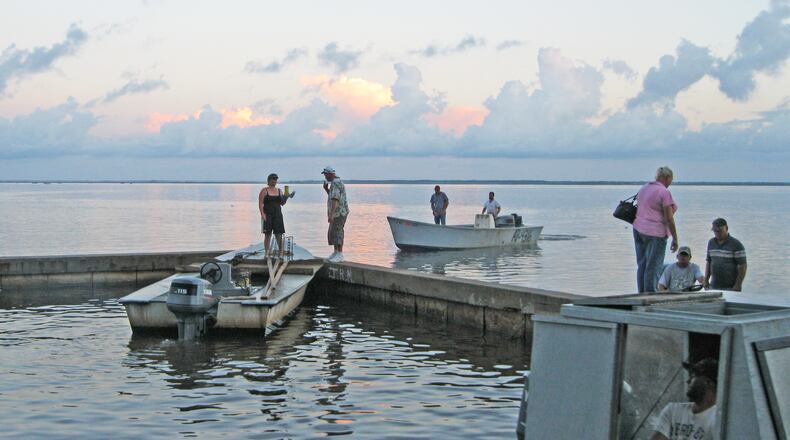Georgia’s economy could take an $18 billion hit if Florida prevails in the upcoming “water wars” trial, according to court documents filed Thursday.
Yet Florida, which is suing Georgia for hogging too much Chattahoochee and Flint river water, appears to be aiming its legal guns at the farmers in Southwest Georgia who use copious amounts of river and groundwater to grow cotton, peanuts and other crops.
And, despite months of confidential meetings between the two states’ governors and their attorneys, the trial appears set to begin Oct. 31 — Halloween — in Portland, Me.
Florida sued Georgia two years ago claiming the upriver state disproportionately hordes water to the downstream detriment of oystermen, endangered mussels and the overall economy. Georgia’s two rivers meet at the Florida line to form the Apalachicola River.
Florida beseeched the U.S. Supreme Court to decide the case and to “equitably apportion” the rivers’ waters. The high court appointed a special master, Ralph Lancaster from Portland, to hear it. Once Lancaster rules, expected early next year, the Supreme Court will likely weigh in.
Florida wants to keep Georgia water withdrawals at 1992 levels when metro Atlanta was home to only half as many people as it is today. Georgia appears to have the upper legal hand. Florida must first prove that Georgia is to blame for its water woes, in particular the damage done by a low-flowing Apalachicola River to oysters and the oyster industry.
Georgia, in its pre-trial briefing filed Thursday, said Florida’s case is without merit serving only to “jeopardize” the state’s economy.
“Accepting Florida’s proposed remedies would thus inflict massive economic injury on Georgia’s farmers and Atlanta’s water supply, without providing any measurable benefit to Florida,” the filing reads. “
Water-using industries across Metro Atlanta — chicken processors, Lockheed Martin, landscapers, utilities — contribute $13.5 billion to the region’s economy, according to Georgia’s legal brief, and employ 50,000. Cotton, peanuts, corn and other crops throughout the Chattahoochee, Flint and Apalachicola regions carried an economic impact of $4 billion.
About the Author
Keep Reading
The Latest
Featured




